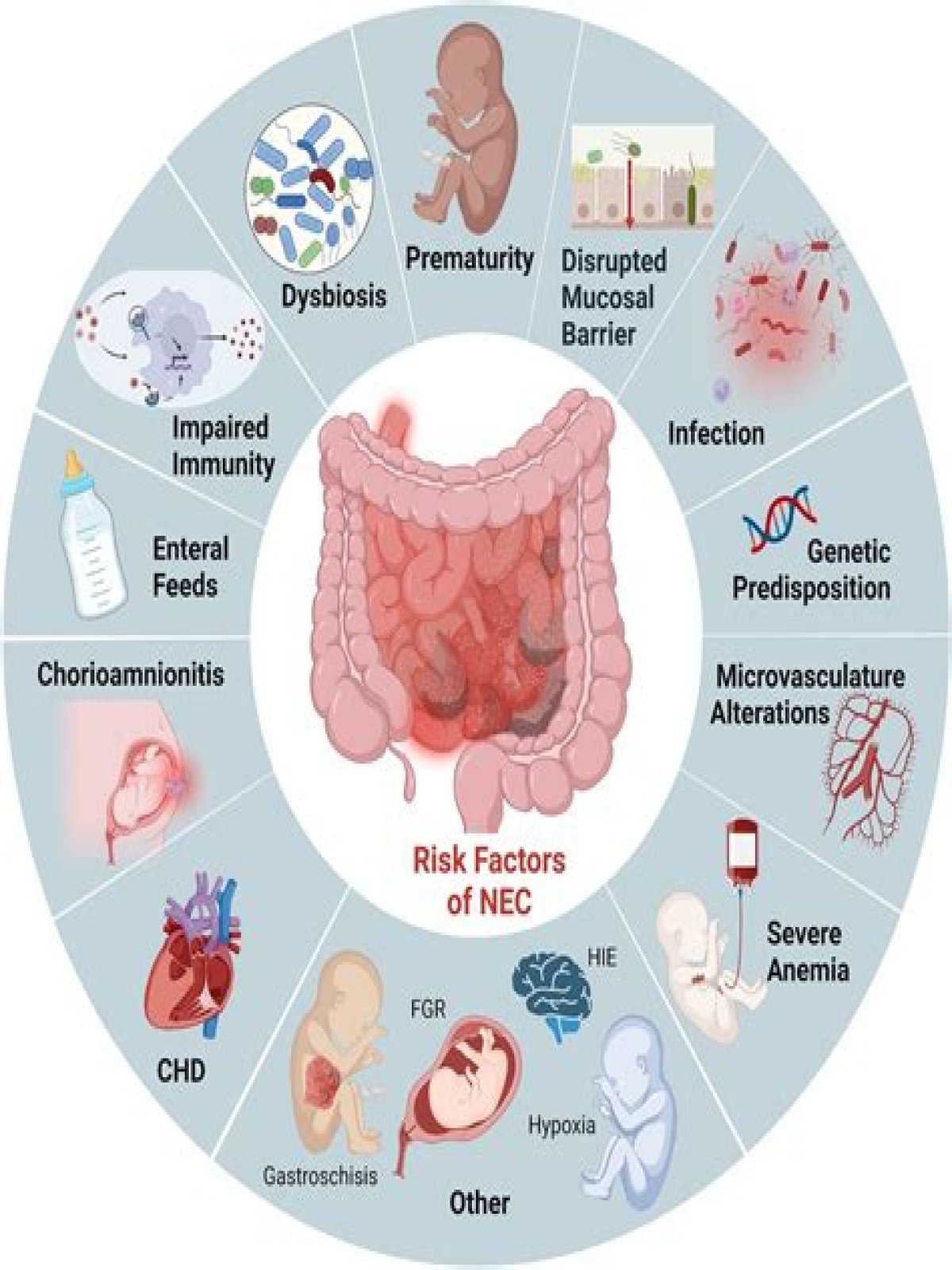what is nec
Necrotizing enterocolitis (NEC) is a gastrointestinal disease that involves infection and inflammation that causes damage and the death of cells in some or all of the intestine.
Can NEC be cured?
NEC can be cured and have little or no lasting effects. Some babies may have future problems. This includes the intestine or digestive tract. They can have blockage caused by abnormal intestinal tissue or scar tissue.
How do you know if baby is NEC?
But an infant who has NEC will normally develop the following in the first two weeks of life: Swollen or bloated belly.Feedings that stay in the stomach and don’t move through the intestines.Green fluid in the stomach.Bloody poop.Trouble breathing, low heart rate, or sluggishness.
How is NEC diagnosed?
How is necrotizing enterocolitis diagnosed? A doctor can diagnose NEC by doing a physical examination and running various tests. During the exam, the doctor will gently touch your baby’s abdomen to check for swelling, pain, and tenderness. They’ll then perform an abdominal X-ray.
What is necrotizing enterocolitis NEC?
Necrotizing enterocolitis (NEC) is the death of tissue in the intestine. It occurs most often in premature or sick babies.
What is NEC in DTI?
Invite to the 2021 National Export Congress (NEC) | Department of Trade and Industry Philippines.
Can adults get NEC?
Necrotizing enterocolitis is an acute disease that primarily affects premature neonates of low birth weight, and has a very high morbidity and mortality. The incidence in adults is significantly less, with lower mortality rates. Of those who survive, many are left with complications related to short gut syndrome.
Can babies survive NEC?
An estimated 8 in 10 babies with NEC survive. Some of these babies will have long-term health problems from NEC.
What bacteria causes necrotizing enterocolitis?
Gram-Positive Bacteria Staphylococcus epidermidis. Clostridia species. Clostridium perfringens. Clostridium difficile. Clostridium butyricum.
Can breastmilk cause NEC?
Premature infants fed formula are more likely to develop necrotizing enterocolitis (NEC) than those who are breastfed, but the mechanisms of intestinal necrosis in NEC and protection by breast milk are unknown.
Does formula cause NEC?
Some experts believe that necrotizing enterocolitis causes have to do with the makeup of infant formula, the rate of delivery of the formula, or the immaturity of the mucous membranes in the intestines. Babies who are fed breast milk can also develop necrotizing enterocolitis, but their risk is lower.
Why do premature babies get NEC?
NEC is a serious illness in very sick, usually premature newborns. It happens when tissue in the large intestine (colon) gets inflamed. No one knows what causes NEC. High-risk babies, especially premature babies who are fed formula through bottles or tubes, are more likely to get it.
What is NEC and what are the symptoms?
The symptoms of NEC can develop over a period of days or appear suddenly. Commonly reported symptoms include2,3: Poor tolerance of feeding (not being able to digest food) Bloating or swelling of the stomach (abdominal distention)
How do I check my NEC?
The condition is usually confirmed by an abdominal X-ray. If the X-ray reveals a “bubbly” appearance in the wall of the intestine or air outside the infant’s intestine (in the peritoneal cavity) the diagnosis is confirmed.
What is necrotic bowel?
Bowel necrosis is a late stage finding of several different disease processes characterized by cellular death due to reduced blood flow to the gastrointestinal (GI) tract. This serious and often fatal condition can be secondary to vascular occlusion, bowel inflammation, obstruction, or infection.
Does Similac cause NEC?
Similac Can Cause Increased Risk of NEC in Premature Infants
Medical research and clinical studies have established that giving cow milk formulas such as Similac to premature infants significantly increases their risk of a dangerous bowel infection called necrotizing enterocolitis (NEC).
What is the survival rate for NEC?
The mortality rate in NEC ranges from 10% to more than 50% in infants who weigh less than 1500 g, depending on the severity of disease, compared with a mortality rate of 0-20% in babies who weigh more than 2500 g.
Does Enfamil cause NEC?
Enfamil Increases the Risk of NEC in Premature Infants
A growing body of scientific evidence has proven cow milk formulas like Enfamil significantly increase the risk of a life-threatening bowel infection called necrotizing enterocolitis for already vulnerable premature infants.
Recommended Posts
como fazer bandeirinhas de festa junina simples confira isto desenho de bandeirinhas juninas quem e o frango da sadia confira isto frango da sadia gasparzinho porque investir na formacao de professores confira isto investimento na formacao de professores porque 33 anos e a idade de cristo confira isto idade de jesus quantos gols o messi tem na carreira confira isto quantos gol messi tem na carreira o que aconteceu com os tribalistas confira isto quem sao os tribalistas o que e presenca de epitelio escamoso confira isto o que significa epitelio escamoso no preventivo where can i watch all of the harry potter movies confira isto harry potter drive google
